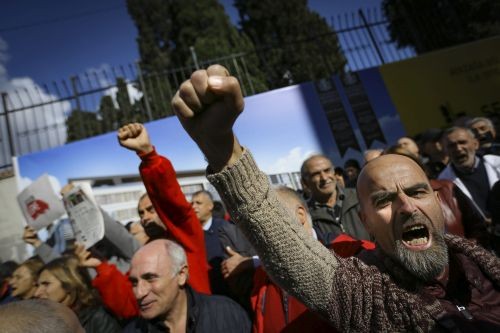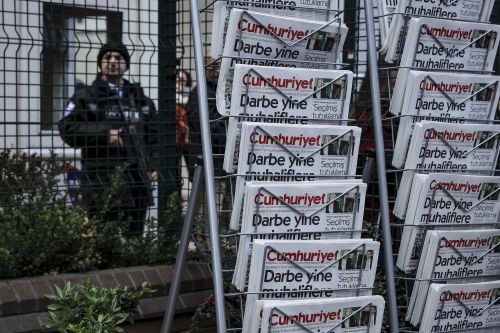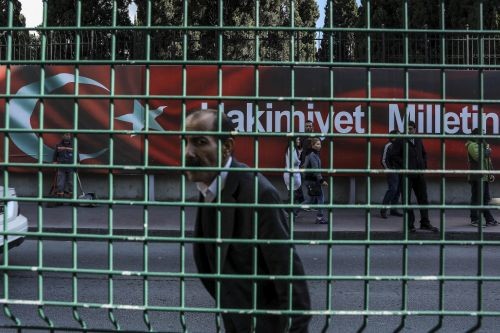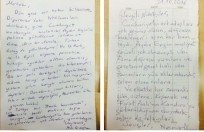Click to read the article in Turkish
Journalists Association of Turkey (TGC), Journalists' Union of Turkey (TGS), Progressive Journalists Association (ÇGD), Confederation of Progressive Trade Unions of Turkey (DİSK)- Press Labor Association and the Reporters withot Borders (RSF) made a statement in front of the office building of Cumhuriyet dail yesterday (October 31)
Here are some images of the solidarity demonstration for Cumhuriyet daily from the objective of photo-reporter Hüseyin Aldemir:

Readers of Cumhuriyet daily, its journalists and many others have advocated the "right to information" in the demonstration.

CLICK - OPERATION IN CUMHURIYET DAILY, 16 TAKEN INTO CUSTODY

* Photographs: Hüseyin Aldemir







